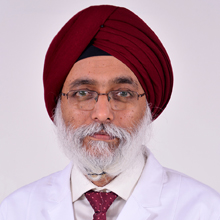All is not well
Depression is a disorder of the brain. It is not simply feeling down, but serious illness caused by changes in brain chemistry. Men and women of every age, educational level, and social and economic background are found to suffer from depression. The disease, though very complex, is very much treatable……..
By Amresh K Tiwary
Manju, an 18-year-old student, started missing from her classes for days together, and her friends noticed that something is not right. She talked to her friend about the time she had been really depressed and had consulted her doctor.
Depression is a common but serious illness. Most who experience depression need treatment to get better. The feelings like sadness, hopelessness, guilt, moodiness, angry outbursts, loss of interest in friends, family and favourite activities including sex drive point to the presence of depression. This also affects your thoughts, behaviour and your overall physical health.
During the treatment of depression, it is found that other illnesses may come on before depression, cause it, or be a consequence of it. But depression and other illnesses interact differently in different people. In any case, co-occurring illnesses need to be diagnosed and treated.
The most common behaviour patterns are withdrawing from people, substance abuse, missing work, school or other commitments and attempts to harm yourself. The persons who are under depression may face physical problems like tiredness or lack of energy, unexplained aches and pains, changes in appetite, weight loss and gain, changes in sleep – sleeping too little or too much and sexual problems.
Depression is believed to be caused by an imbalance in the neurotransmitters which are involved in mood regulation.
Neurotransmitters are chemical substances which help different areas of the brain communicate with each other. When certain neurotransmitters are in short supply, this may lead to the symptoms we recognize as clinical depression.
It has been widely documented that women suffer from major depression about twice as often as men. Because the incidence of depressive disorders peaks during women’s reproductive years, it is believed that hormonal risk factors may be to blame.
Women are especially prone to depressive disorders during times when their hormones are in flux, such as around the time of their menstrual period, childbirth, and perimenopause. In addition, a woman’s depression risk declines after she goes through menopause.
It’s estimated that 10 to 15 percent of the general population will experience clinical depression in their lifetime. And the World Health Organization estimates 5 percent of men and 9 percent of women experience depressive disorders in any given year.
The mind and the body are clearly linked. If you are experiencing a physical health problem you may discover changes in your mental health as well.
Illness is related to depression in two ways. The stress of having a chronic illness may trigger an episode of major depression.
In addition, certain illnesses, such as thyroid disorders, Addison’s disease and liver disease, can cause depression symptoms. Drugs and alcohol can contribute to depressive disorders. But, even some prescription drugs have been linked to depression.
Some drugs that have been found to be associated with depression include anticonvulsants, statins, stimulants, benzodiazepines, corticosteroids, and beta-blockers.
It is important to review any medications that you’ve been prescribed and to speak with your physician if you are feeling depressed.
Stressful life events, which overwhelm a person’s ability to cope, may be a cause of depression. Researchers suspect high levels of the hormone cortisol, which are secreted during periods of stress, may affect the neurotransmitter serotonin and contribute to depression.
Following the loss of a loved one, grieving individuals experience many of the same symptoms of depression. Trouble sleeping, poor appetite, and a loss of pleasure or interest in activities are a normal response to loss.

The symptoms of grief are expected to subside over time. But when symptoms get worse, grief may turn into depression.
According to Prof (Dr.) Nimesh G Desai, Professor of Psychiatry and Director, Institute of Human Behaviour and Allied Sciences (IHBAS), Delhi, Alcohol and other substance abuse or dependence may also co-exist with depression. Research shows that mood disorders and substance abuse commonly occur together. Depression also may occur with other serious medical illnesses such as heart disease, stroke, cancer, HIV/AIDS, diabetes, and Parkinson’s disease. People who have depression along with another medical illness tend to have more severe symptoms of both depression and the medical illness, more difficulty adapting to their medical condition, and more medical costs than those who do not have co-existing depression. Treating the depression can also help improve the outcome of treating the co-occurring illness.
“Most likely, depression is caused by a combination of genetic, biological, environmental, and psychological factors. Depressive illnesses are disorders of the brain. Longstanding theories about depression suggest that important neurotransmitters—chemicals that brain cells use to communicate—are out of balance in depression. But it has been difficult to prove this,” Prof (Dr.) Nimesh G Desai, said.
Brain-imaging technologies, such as magnetic resonance imaging (MRI), have shown that the brains of people who have depression look different than those of people without depression. The parts of the brain involved in mood, thinking, sleep, appetite, and behaviour appear different. But these images do not reveal why the depression has occurred. They also cannot be used to diagnose depression.
Prof (Dr) Nimesh G Desai, said, “Some types of depression tend to run in families. However, depression can occur in people without family histories of depression too. Scientists are studying certain genes that may make some people more prone to depression. Some genetics research indicates that risk for depression results from the influence of several genes acting together with environmental or other factors. In addition, trauma, loss of a loved one, a difficult relationship, or any stressful situation may trigger a depressive episode. Other depressive episodes may occur with or without an obvious trigger.”
 Dr. Anandi Lal, Senior Consultant and Head, Psychiatry, Max Superspeciality Hospital, Vaishali, said, “Depression can affect anyone at almost any age. And the reasons why some people grow depressed are not always known. There are many causes of depression.
Dr. Anandi Lal, Senior Consultant and Head, Psychiatry, Max Superspeciality Hospital, Vaishali, said, “Depression can affect anyone at almost any age. And the reasons why some people grow depressed are not always known. There are many causes of depression.
Depressive illnesses are disorders of the brain. Depression is more common among women than among men. Biological, life cycle, hormonal, and psychosocial factors that women experience may be linked to women’s higher depression rate. We have observed hormones directly affect the brain chemistry that controls emotions and mood. For example, women are especially vulnerable to developing postpartum depression after giving birth, when hormonal and physical changes and the new responsibility of caring for a new-born can be overwhelming.”

Dr. N P Singh, Senior Consultant, Internal Medicine and Nephrology, Max Super speciality Hospital, Vaishali, said, Some women may also have a severe form of premenstrual syndrome (PMS) called premenstrual dysphonic disorder (PMDD). PMDD is associated with the hormonal changes that typically occur around ovulation and before menstruation begins.”
“During the transition into menopause, some women experience an increased risk for depression. In addition, osteoporosis—bone thinning or loss—may be associated with depression. Scientists are exploring all of these potential connections and how the cyclical rise and fall of estrogen and other hormones may affect a woman’s brain chemistry, Dr N P Singh, said.
Dr N P Singh , said, “Many women face the additional stresses of work and home responsibilities, caring for children and ageing parents, abuse, poverty, and relationship strains. It is still unclear, though, why some women faced with enormous challenges develop depression, while others with similar challenges do not.”
Men often experience depression differently than women. While women with depression are more likely to have feelings of sadness, worthlessness, and excessive guilt, men are more likely to be very tired, irritable, lose interest in once-pleasurable activities, and have difficulty in sleeping.
Men may be more likely than women to turn to alcohol or drugs when they are depressed. They also may become frustrated, discouraged, irritable, angry, and sometimes abusive. Some men throw themselves into their work to avoid talking about their depression with family or friends, or behave recklessly.
Dr. Anandi Lal, Senior Consultant and Head, Psychiatry, Max Superspeciality Hospital, Vaishali, said, “ Depression is not a normal part of ageing. Studies show that most senior citizens feel satisfied with their lives, despite having more illnesses or physical problems. However, when older adults do have depression, it may be overlooked because seniors may show different, less obvious symptoms. They may be less likely to experience or admit to feelings of sadness or grief.”
Sometimes it can be difficult to distinguish grief from major depression. Grief after loss of a loved one is a normal reaction to the loss and generally does not require professional mental health treatment. However, grief that is complicated and lasts for a very long time following a loss may require treatment. Researchers continue to study the relationship between complicated grief and major depression.
Older adults also may have more medical conditions such as heart disease, stroke, or cancer, which may cause depressive symptoms. Or they may be taking medications with side effects that contribute to depression. Some older adults may experience what doctors call vascular depression, also called arteriosclerotic depression or subcortical ischemic depression. Vascular depression may result when blood vessels become less flexible and harden over time, becoming constricted. Such hardening of vessels prevents normal blood flow to the body’s organs, including the brain. Those with vascular depression may have, or be at risk for, co-existing heart disease or stroke.
Older adults with depression improve when they receive treatment with an antidepressant, psychotherapy, or a combination of both. Research has shown that medication alone and combination treatment are both effective in reducing depression in older adults. Psychotherapy alone also can be effective in helping older adults stay free of depression, especially among those with minor depression. Psychotherapy is particularly useful for those who are unable or unwilling to take antidepressant medication.
Children who develop depression often continue to have episodes as they enter adulthood. Children who have depression also are more likely to have other more severe illnesses in adulthood.

According to Dr. Anup Mohta, Director, Chacha Nehru Bal Chikitsalaya, East Delhi, childhood depression often persists, recurs, and continues into adulthood, especially if left untreated. A child with depression may pretend to be sick, refuse to go to school, cling to a parent, or worry that a parent may die.” Older children may sulk, get into trouble at school, be negative and irritable, and feel misunderstood. Because these signs may be viewed as normal mood swings typical of children as they move through developmental stages, it may be difficult to accurately diagnose a young person with depression.
Children who have depression also are more likely to have other more severe illnesses in adulthood. Before puberty, boys and girls are equally likely to develop depression. By the age of 15, however, girls are twice as likely as boys to have had a major depressive episode.
Depression during the teen years comes at a time of great personal change—when boys and girls are forming an identity apart from their parents, grappling with gender issues and emerging sexuality, and making independent decisions for the first time in their lives. Depression in adolescence frequently co-occurs with other disorders such as anxiety, eating disorders, or substance abuse. It can also lead to increased risk for suicide.
Depression, even the most severe cases, can be effectively treated. The earlier that treatment can begin, the more effective it is.The first step to getting appropriate treatment is to visit a doctor or mental health specialist. Certain medications, and some medical conditions such as viruses or a thyroid disorder, can cause the same symptoms as depression.
A doctor can rule out these possibilities by doing a physical exam, interview, and lab tests. If the doctor can find no medical condition that may be causing the depression, the next step is a psychological evaluation.
Once diagnosed, a person with depression can be treated in several ways. The most common treatments are medication and psychotherapy.
According to Dr N P Singh, all of us can expect to experience one or more of these symptoms on occasion. An occurrence of any one of these symptoms on its own does not constitute depression. When we suspect depression, we commonly look for clusters of these symptoms occurring regularly for two weeks or longer, and impacting functional aspects of the person’s life.
In medical terms, depression is a real illness that impacts the brain. Anyone suffering from depression will tell you, it’s not imaginary or all in your head, depression is more than just feeling down. It is a serious illness caused by changes in brain chemistry. Research tells us that other factors contribute to the onset of depression, including genetics, changes in hormone levels, certain medical conditions, stress, grief or difficult life circumstances. Any of these factors alone or in combination can precipitate changes in brain chemistry that lead to depression’s many symptoms.
 Dr Vinay Agarwal, Member, Indian Medical Association and Founder Chairman, Max Super Speciality Hospital, Vaishali, said, “Depression is a serious condition. It’s also, unfortunately, a common one. The World Health Organization characterizes depression as one of the most disabling disorders in the world, affecting roughly one in five women and one in ten men at some point in their lifetime. Men and women of every age, educational level, and social and economic background suffer from depression.”
Dr Vinay Agarwal, Member, Indian Medical Association and Founder Chairman, Max Super Speciality Hospital, Vaishali, said, “Depression is a serious condition. It’s also, unfortunately, a common one. The World Health Organization characterizes depression as one of the most disabling disorders in the world, affecting roughly one in five women and one in ten men at some point in their lifetime. Men and women of every age, educational level, and social and economic background suffer from depression.”
Dr Vinay Agarwal, adds, “There is no area of life that does not get affected when depression is present. Marriage, parenting, friendships, careers, finances – every aspect of daily living is compromised by this disease. Once an episode of depression occurs, it is also quite likely that it will recur. And the impact of depression can be even more severe when it occurs in combination with other medical illnesses such as diabetes, stroke, or cardiovascular disease, or with related disorders such as anxiety or substance abuse.”

Says Dr Suneel Garg, Director Professor, Department of Community Medicines, Maulana Azad Medical College, New Delhi, “The problems caused by depression are made worse by the fact that most people suffering from the disease are never diagnosed, let alone treated. The good news is that when depression is promptly identified and treated, its symptoms are manageable and there are many effective strategies for living with the disease.”
“Many factors may contribute to the onset of depression, including genetic characteristics, changes in hormone levels, certain medical illnesses, stress, grief, or substance abuse. Any of these factors alone or in combination can bring about the specific changes in brain chemistry that lead to the many symptoms of depression, bipolar disorder and related conditions, Lifestyle changes, including improvements in sleeping and eating habits, physical activity and stress reduction have also proven very helpful in managing symptoms of depression,” adds Dr Suneela Garg.
Dr Vinay Agarwal, adds, “There are several strategies for treating depression. Depending upon each individual’s characteristics and symptoms, healthcare professionals may employ one or more types of psychotherapy that rely upon a sequence of interpersonal treatment sessions with a trained professional. In addition, clinicians may suggest that a patient try one of a number of different medications.”

